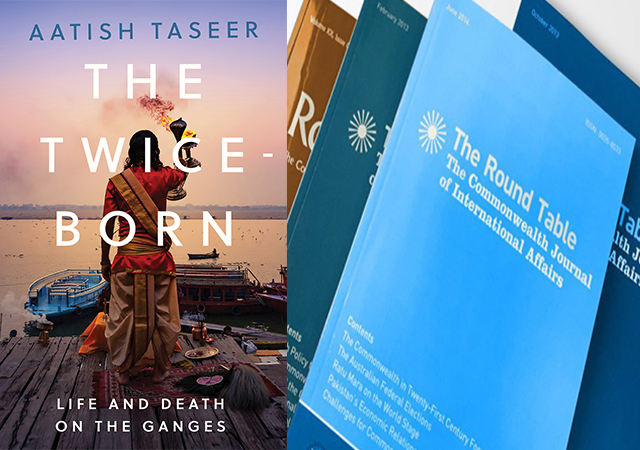
I still recall my visit to Benares, the spiritual capital of Hindu India on the River Ganges, when I was a child. I was equally fascinated and repelled by the jostling crowds, funeral pyres on the ghats and the sight of devotees bathing in the polluted waters while flames from funeral pyres flickered nearby. The bodies of the dead surrounded by flowers were carried by mourners to the river bank waiting for space to be cleared for cremation. There were people everywhere along with dogs, cows and goats picking through the rubbish in search of something to eat.
With these images in my mind it was intriguing to read this account of Benares by a writer with a complex background. Aatish Taseer, son of a prominent Indian writer and a Pakistani politician and businessman, grew up among New Delhi’s westernised intellectuals. In January 2011, Taseer’s father, who was governor of Punjab in Pakistan at the time, was shot dead by a member of his elite guard in Islamabad because of his position on Pakistan’s blasphemy laws. His father had enraged Islamist extremists by taking up the cause of a poor Christian woman accused of blasphemy. Although Taseer had been estranged from his father for most of his life he perceived parallels between them: ‘My father was also a kind of foreigner in Pakistan. His mother was English; he was liberal, westernised; he had no religious faith in a country where the decade after 9/11 had given Islam a new identity. My father’s foreignness, not unlike my own in India, had made his position in Pakistan far more precarious than he had realised.’
Taseer first visited Benares as a teenager. Twenty years later he leaves his life in Manhattan to return in search of the ‘twice-born’: the Brahmins, devoted to sacred learning. To aid his search, Taseer sought out people who would help him to regain what a colonial education had denied him. This journey brings him into contact with an assortment of personalities some of whom belonged to a generation of upper-class Indians who could barely complete a sentence in an Indian language and others steeped in a deep knowledge of Sanskrit, Hindu religion and culture. He also met young men from villages who were torn between their attraction to the westernised glamour of the city and their resolve to maintain their Hindu identity. Taseer made regular visits to Benares to educate himself in Hindu tradition and ritual and re-examine fundamental issues such as the role of caste and view of death in today’s India.
Each new character Taseer meets enables him to peel away another layer of the physical and spiritual history of Benares. Travelling by train from Delhi to Benares which are only 800 kilometres apart, the author observes that the real distance, the sense of travelling across centuries was not physical. He writes, ‘In Benares, it was possible to see in miniature every major event that had etched itself onto India’s consciousness.’
Twice-Born is a deeply personal memoir marked by profound events in the author’s own life. Taseer acknowledges being overwhelmed by the scale of the mission he has undertaken. He is very aware of the two thousand years of literary production in India and his own limited perception of the past. The book charts the transition from the focus on synthesis and assimilation under Nehru to the rise of Hindu nationalism spurred by Narendra Modi. It was no surprise that Modi had chosen Benares as one of his two constituencies for the general election in 2014 drawing on the city’s symbolical power to fit his politics of revival . The book helps us to understand Modi’s appeal to a generation of restless young people desperate for an alternative to the westernised elite which, under Congress rule, had dominated politics and thinking for nearly seventy years after India gained independence.
People spoke of Modi’s election victory as a second independence, in which Hindu India would shrug off the legacy of foreign rule, and the true soul of the country would find utterance. This was articulated by Anand Mohan Jha a boatman: ‘When Modi comes to power, we will send this government of the English packing, and everything will become Hindi’.
Twice Born becomes increasingly topical as Modi consolidates his authority following his re-election this year with an increased majority, leaving him with a freer hand to push through what has long been regarded as the RSS dream of turning India into a Hindu state. As we have seen with the decision to remove the special status of Kashmir, India’s only Muslim majority state, Modi has been emboldened in his drive to remove all vestiges of the country’s colonial past. The perennial fear of the Hindu right: the return of foreign rule over a weak and divided country permeates the book but it leaves one wondering whether the tendency to blame India’s failures on the West has led to an equally negative drive to glorify the past without recognising the dangers. Taseer concludes with the observation that his questing after India had been a precursor to his moving more honestly away from it. ‘Just as Islam that had appeared in our time – and that killed my father – was not traditional, not even medieval but utterly new, so too was this modern brand of Hinduism’.
Rita Payne is a Journalist and Media Advisor, President Emeritus Commonwealth Journalists Association and a member of the Round Table Editorial Board.
The Twice Born – Life and Death on the Ganges by Aatish Taseer, London, Hurst, 2019. ISBN 9781787381193.



